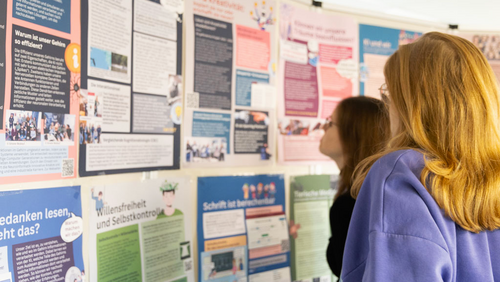The aim is to provide them with opportunities to further develop the content and strategy of their professorship. "Receiving this funding is really recognition of a great research achievement, for which I would like to congratulate Prof. Bartscherer," explains Prof. Dr. Kai-Uwe Kühnberger, Vice President for Research, Social Dialog and Outreach at Osnabrück University.
The "Momentum" program is open to all subject areas and is aimed at university professors three to five years after taking up their first lifetime professorship. Funding is provided for "concepts for the strategic and content-related further development of the professorship", according to the Volkswagen Foundation's website. Prof. Bartscherer will receive a total of € 930,000 from the funding pot over four years. The funding can also be extended for a further two years and €250,000.
Kerstin Bartscherer studied biotechnology and molecular biology in Mannheim and Göttingen and conducted research as a junior scientist in Heidelberg, New York and Barcelona. Before moving to Osnabrück University as Professor of Animal Physiology in 2021, she led a research group on tissue and organ regeneration at the Max Planck Institute in Münster and the Hubrecht Institute in Utrecht. Her research focuses on finding answers to the question of why some animals can regenerate tissue, organs or entire body parts without scarring and others cannot.
With the help of Momentum funding from the Volkswagen Foundation, Prof. Bartscherer will now establish a new branch of research on scar-free skin regeneration at the School of Biology/Chemistry: "The funding will enable me and my team to establish a laboratory platform with which we can grow complex, hair-forming skin from human stem cells," says the Heidelberg native. "We will then use these '3D skin organoids' to test active ingredients and research how scarring can be prevented - without animal testing."
Further information for the media:
Prof. Dr. Kerstin Bartscherer, Osnabrück University
School of Biology/Chemistry
kerstin.bartscherer@uos.de




